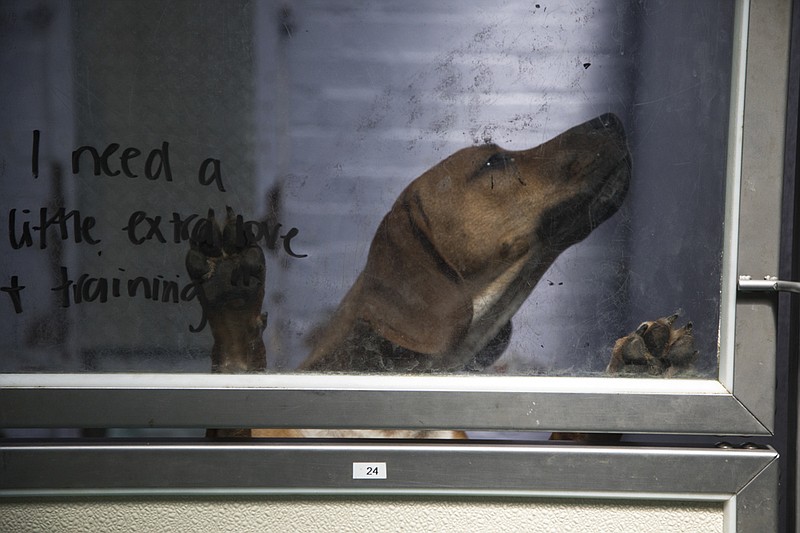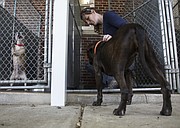Many people are finding new hobbies as they are social distancing and spending more time at home during the coronavirus pandemic. Some people are taking up gardening or raising chicks, others are sewing homemade face masks for first responders and themselves, and some are adding new furry foster pets to their homes.
In what they labeled a "tremendous" effort before the coronavirus arrived in Chattanooga, staff and volunteers at the Humane Educational Society tried to get as many dogs and cats as they could out of the shelter and into foster homes. Now at least 133 animals are being cared for by foster families, and the Humane Education Society, the McKamey Animal Center and other local rescues are still encouraging people to try it out.
"Since people are pretty much holed up at home, a pet can provide companionship," said Phillip Snyder, executive director for the humane society.
During these stressful times, a pet can provide a slew of emotional and health benefits, according to the U.S. Centers for Disease Control and Prevention.
Studies have shown that the bond between people and their pets can increase fitness, lower stress, and bring happiness to their owners. Pet ownership also can lead to decreased blood pressure, a decreased cholesterol level, a decreased triglyceride level and decreased feelings of loneliness, according to the CDC.
And getting animals out of the shelter is beneficial for them, too.
The longer an animal lives at the shelter, the harder it is for them to re-adjust to house life, Snyder said. Some animals become "cage crazy" or aggressive, and others might become "deeply introverted" or timid.
"The longer they're in here, the more work it takes to get them ready to be re-homed," he said. "Most come from a home environment and then into a shelter environment, and without all the attention that we give an animal medically and emotionally, they can go off the deep end."
The shelter is still housing about 150 animals at its century-old location on North Highland Park Avenue, and Snyder said it had been lucky so far and hasn't seen a dramatic increase in owner surrenders or strays. Some areas, such as Atlanta, have seen the numbers of animals coming into shelters rise and adoptions dramatically drop, according to U.S. News and World Report.
But though Chattanooga hasn't hit the same cliff yet, Snyder cautions that puppy and kitten season is quickly approaching, and that is the time when the shelter's number of inhabitants can dramatically rise to as much as 300.
"Adoptions have been steady and the numbers of animals about the same. We haven't seen a tremendous decrease in adoptions that we expected or the increase in incoming animals," Snyder said. "It still may come with all the warnings that are out there and things still changing. We certainly encourage anyone who feels they have to surrender their pet to hang on to their pet until at least the pandemic ends."
Snyder and his team are still holding curbside adoptions by appointment and also encouraging people to take home a foster pet, though. In "normal times," as he said, fosters are often needed for pregnant mothers or very young puppies and kittens, but now, shelter staff members are conducting foster matches similar to adoption matches.
They talk to interested fosters about their homes and what they can provide the pet and try to find the right animal to match.
"We want to know that you have the space if you are able to foster, what type of room you have, what you are able to provide, if you have a fenced-in yard - the same sort of requirements as with the adoptions, even though this might be a temporary situation," Snyder said.
There is also always the hope that a foster will decide to make their pandemic puppy or kitty a permanent member of the family.
For more information about volunteering or fostering for the Humane Educational Society, and to see a list of current animals available for adoption, visit: www.heschatt.org.
Contact Meghan Mangrum at mmangrum@timesfreepress.com or 423-757-6592. Follow her on Twitter @memangrum.

